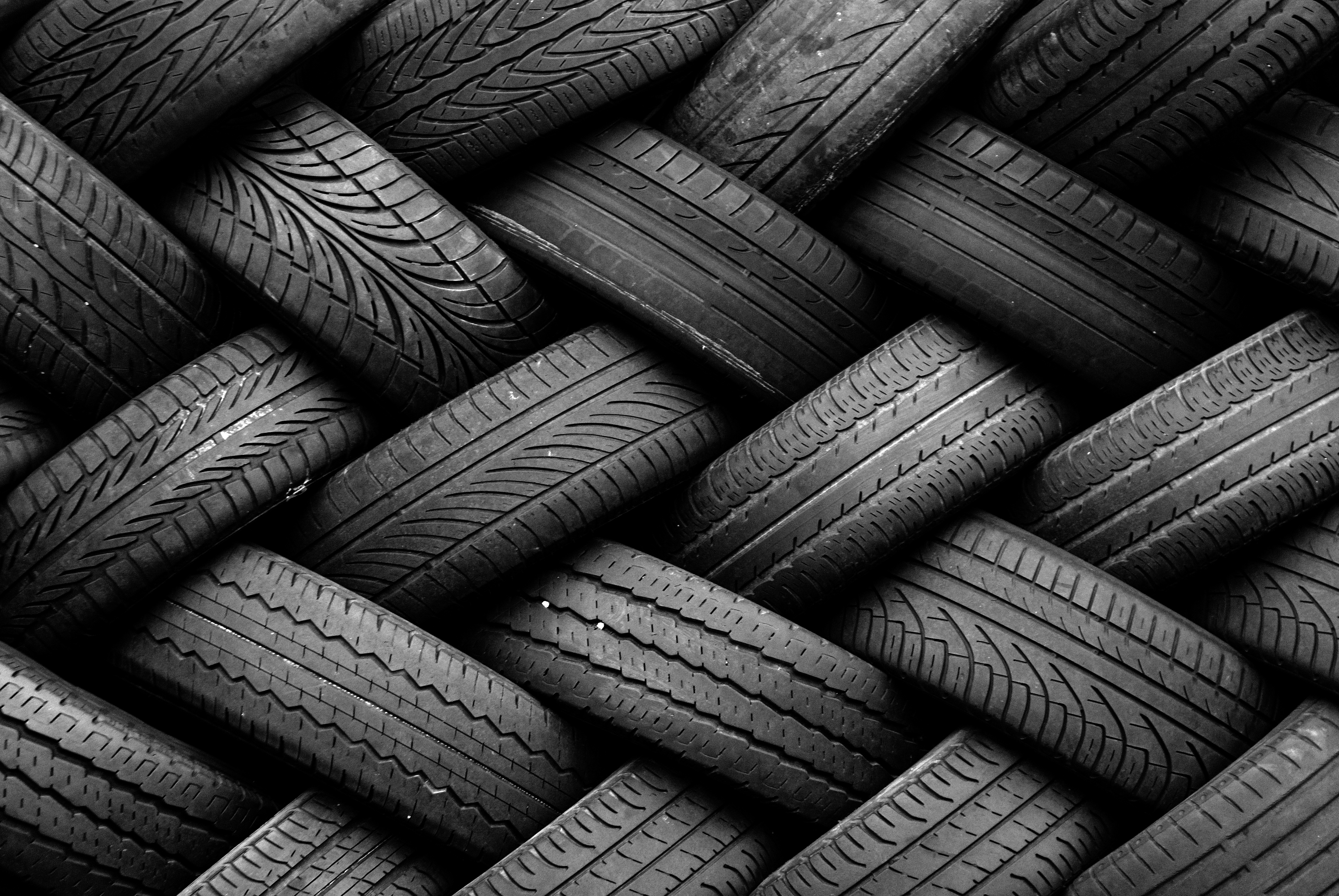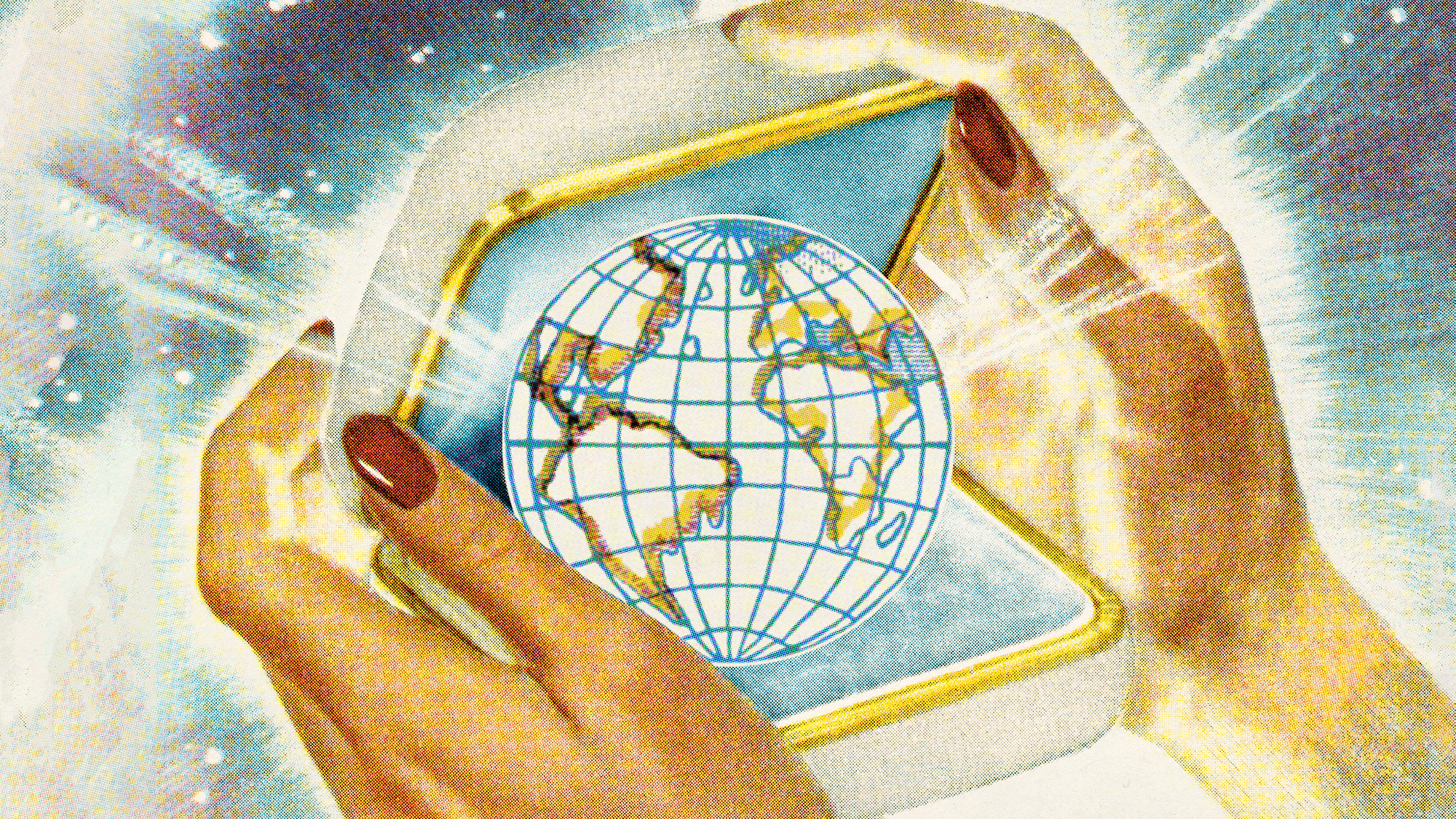The unexpected way cars contribute to pollution
It may be time to reinvent the wheel


A free daily email with the biggest news stories of the day – and the best features from TheWeek.com
You are now subscribed
Your newsletter sign-up was successful
Cars and other vehicles are a great source of pollution, not just due to their exhaust fumes. Your car's tires and brakes contribute substantially to particulates in the air. In turn, these parts, even in electric vehicles, contribute to health problems and climate change.
How do tires and brakes create pollution?
The pollution comes from the wear and tear of these parts over time. The dust from tires and brakes can make up particulate matter in the air, both visible and invisible to the eye, that we then inhale. "These nontailpipe emissions are becoming an issue for two reasons," said Heejung Jung, a professor at the University of California, Riverside, to The Washington Post. "One, it hasn't been regulated. Second, its chemical composition can be potentially more toxic, especially for brakes' [particulate matter] … they're all metallic."
Tire dust is one of the most prevalent microplastics with over 6 million metric tons of it ending up in the air and waterways annually, according to CNN. "We all know that tires wear down, but no one ever really thinks about where that material goes, and it's going into our air and water," remarked Siobhan Anderson, the chief scientific officer and co-founder of the startup The Tyre Collective to CNN. In some ways, tire dust is more potent than tailpipe emission. In 2020, a study found that tire chemicals may have contributed to several salmon deaths in the U.S. Pacific Northwest.
The Week
Escape your echo chamber. Get the facts behind the news, plus analysis from multiple perspectives.

Sign up for The Week's Free Newsletters
From our morning news briefing to a weekly Good News Newsletter, get the best of The Week delivered directly to your inbox.
From our morning news briefing to a weekly Good News Newsletter, get the best of The Week delivered directly to your inbox.
The previous assumption held that "big chunks of rubber breaking off tires" were caught in drains and that it wasn't all that large of a concern, explained Nick Molden, the founder and CEO of Emissions Analytics to the Post. "What we've shown from our testing is that it's a mixture of bigger particles but also ultrafine particles." He added, "Water is likely to be the single biggest destination of these particles." The smallest particles are PM 2.5 pollution, which is small enough to be inhaled and cause respiratory problems.
What's being done about it?
Since cars aren't going anywhere anytime soon, the better solution is to alter the materials used to make tires and brakes. Currently, the parts are usually made of synthetic rubber from crude oil, which contains several chemicals including some known to be carcinogenic.
One of the ideas is to make tires from a newer, natural rubber derived from dandelions. There's a collaborative initiative between tire and rubber company Goodyear, the Department of Defense, the Air Force Research Lab, BioMADE and Farmed Materials to do just that. "Global demand for natural rubber continues to grow, and it remains a key raw material for the tire industry," said Chris Helsel, the senior vice president of Global Operations and chief technology officer for Goodyear, in a press release. "This is a critical time to develop a domestic source of natural rubber, which may help mitigate future supply chain challenges."
The Tyre Collective is creating a "wheel-mounted device that collects the tiny particles on electrostatically charged copper plates" that then "will be emptied monthly by technicians at garages," according to CNN. The particles could even be upcycled into other objects going forward.
A free daily email with the biggest news stories of the day – and the best features from TheWeek.com
The toxic chemicals in tires are "negatively impacting wildlife, the environment and human health," Lisa Erdle, the director of research and innovation for The 5 Gyres Institute, told CNN. She added, "If this issue goes unchecked, we'll see an accumulation of tire dust in the environment."
Devika Rao has worked as a staff writer at The Week since 2022, covering science, the environment, climate and business. She previously worked as a policy associate for a nonprofit organization advocating for environmental action from a business perspective.
-
 Political cartoons for February 19
Political cartoons for February 19Cartoons Thursday’s political cartoons include a suspicious package, a piece of the cake, and more
-
 The Gallivant: style and charm steps from Camber Sands
The Gallivant: style and charm steps from Camber SandsThe Week Recommends Nestled behind the dunes, this luxury hotel is a great place to hunker down and get cosy
-
 The President’s Cake: ‘sweet tragedy’ about a little girl on a baking mission in Iraq
The President’s Cake: ‘sweet tragedy’ about a little girl on a baking mission in IraqThe Week Recommends Charming debut from Hasan Hadi is filled with ‘vivid characters’
-
 How climate change is affecting Christmas
How climate change is affecting ChristmasThe Explainer There may be a slim chance of future white Christmases
-
 Why scientists are attempting nuclear fusion
Why scientists are attempting nuclear fusionThe Explainer Harnessing the reaction that powers the stars could offer a potentially unlimited source of carbon-free energy, and the race is hotting up
-
 Canyons under the Antarctic have deep impacts
Canyons under the Antarctic have deep impactsUnder the radar Submarine canyons could be affecting the climate more than previously thought
-
 NASA is moving away from tracking climate change
NASA is moving away from tracking climate changeThe Explainer Climate missions could be going dark
-
 What would happen to Earth if humans went extinct?
What would happen to Earth if humans went extinct?The Explainer Human extinction could potentially give rise to new species and climates
-
 Bacteria can turn plastic waste into a painkiller
Bacteria can turn plastic waste into a painkillerUnder the radar The process could be a solution to plastic pollution
-
 Florida has a sinking condo problem
Florida has a sinking condo problemUNDER THE RADAR Scientists are (cautiously) ringing the alarms over dozens of the Sunshine State's high-end high-rises
-
 Diamonds could be a brilliant climate solution
Diamonds could be a brilliant climate solutionUnder the radar A girl and the climate's best friend
